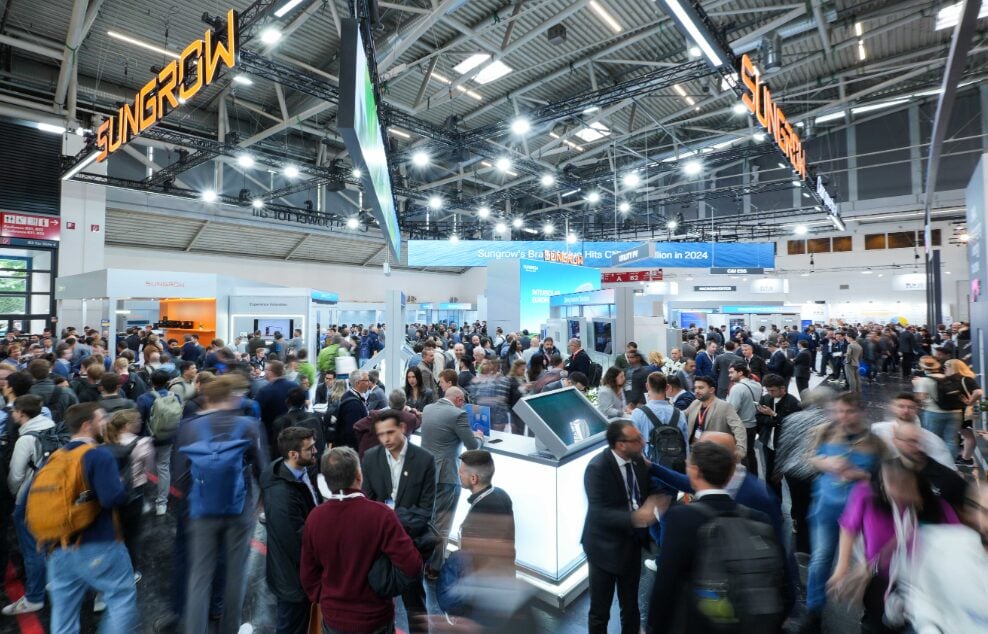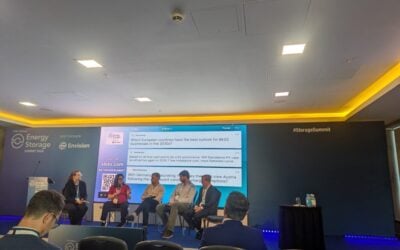

Italy and Spain are set to soar as energy storage markets with multiple gigawatt-hours under construction and much more in the pipeline, but there are questions around the regulatory frameworks driving deployments in each country.
That’s according to executives from system integrators Sungrow and Nidec ASI in conversation with ESN Premium at the ees Europe trade expo and conference earlier this month.
Italy
Italy is set to be one of Europe’s busiest and largest markets for battery energy storage system (BESS) deployment over the next few years, thanks in large part to its MACSE auction.
System integrator Nidec ASI is one of the few that is already building large-scale BESS in Italy having won a 1.35GW/5.4GWh contract back in 2022. Though never confirmed, they are most likely for power firm Enel which announced construction on its 1.6GW pipeline in 2023.
Try Premium for just $1
- Full premium access for the first month at only $1
- Converts to an annual rate after 30 days unless cancelled
- Cancel anytime during the trial period
Premium Benefits
- Expert industry analysis and interviews
- Digital access to PV Tech Power journal
- Exclusive event discounts
Or get the full Premium subscription right away
Or continue reading this article for free
Franck Girard, président of Nidec ASI told Energy-Storage.news that the firm has completed 14 out of the 18 sites in Italy. Discussing the Italian market, he said that MACSE holds promise but the final price of the auction is still a big question mark.
“Everyone is focused on the MACSE tender, with 10GWh expected for the first one. The big question is what will be the final price. The pipeline is very big, something like 100GWh according to the feedback. That means the bidding pipeline is 10x the capacity,” Girard said.
The first auctions under MACSE, full name Meccanismo di Approvvigionamento di Capacità di Stoccaggio Elettrico (Electricity Storage Capacity Procurement Mechanism), will take place in Q3 2025.
Javier Izcue, VP Europe responsible for South Europe for inverter and battery energy storage system (BESS) Sungrow said that the capacity market (CM) in Italy is also expected to hand contracts to around 6GWh of storage per year.
“Many companies from outside Italy will participate in these auctions. Everyone was expecting 2025 to be the boom year, but 2026-2030 is the plan now with MACSE and the CM. The topology of Italy means there is a clear strategy,” Izcue said.
Girard said that deploying BESS in Italy didn’t require a different approach to its work in other countries. He said the market is seeing some 8-hour systems deployed, with that configuration lending itself well to the MACSE scheme. The firm assembles its BESS from a site in Roche la Moliere, France.
Spain
Energy storage is already booming in Italy but Spain is the next big market for storage in Southern Europe, Izcue said, adding that some 1GWh is already under construction there.
“Spain and Italy have some similarities. There’s a tender process in Spain called PERTE and the first one allotted around 4.5GWh, there is currently around 1GWh under construction. There is also a programme called FEDER with around €700 million (US$798.52 million) to be put into energy storage,” Izcue said.
“I think Spain is starting to realise that storage is not only energy-shifting but also grid-forming. It can provide things like frequency regulation, black start, everything related to the grid – but it needs specific regulations around that. The market for sure is there.”
Spain and Portugal suffered from a huge blackout a few days prior to the ees Europe event. Full details have not been released though many have speculated that having more grid-forming and grid-supporting energy storage could have helped.
Izcue was keen to stress he was not commenting directly on the blackout since details had not been released, but said that new regulations were needed to allow storage to properly provide those grid services.
“There is not a clear regulation in Spain for what storage can offer in terms of grid-forming. Storage can provide grid support services but there is not a regulation about it for you to get a premium on it. This will be the next step,” he said. “There are discussions and checking how it can be done, the idea is there.”
“The first-movers in Spain will benefit from the energy-shifting revenues primarily. Long-term, we can’t say with certainty what the revenue stack will be.”





